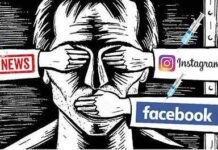
You probably associate your morning cup of joe with a much-needed jolt of alertness. But the effects of caffeine aren’t limited to your energy levels — it can also influence your entire body, all the way up to the hair on top of your head. But how exactly do coffee and hair connect?
As it turns out, one of these strand-supporting ingredients might just be in your mug of coffee: Caffeine, a naturally-occurring substance found in several plants, may have a beneficial effect on your follicles to promote healthy hair, per November 2014 research in the British Journal of Dermatology.
1. It May Promote Hair Growth
Anyone can experience hair loss for a variety of reasons, including genetics, hormone changes, underlying illness, stress and damage to hair follicles, according to the Mayo Clinic.
It also helped block the effects of a hormone that damages hair follicles and contributes to hair loss (particularly in people with male pattern baldness).
Another study found that your hair follicles can absorb caffeine directly via topical application of caffeine-enriched shampoo, according to older March 2007 research in Skin Pharmacology and Physiology (which is one of the only studies on this topic). This suggests that caffeinated hair products may be a speedy way to deliver growth-supporting treatments straight to the follicles for those experiencing premature hair loss.
How to Use Caffeine for Hair Regrowth
It does appear that caffeine applied topically may help grow hair. As a result, there are caffeine shampoos you can try. But remember, the FDA doesn’t require these products to be proven safe or effective before they’re sold, so there’s no guarantee that the shampoo you use produces the effects it claims.
2. It May Improve Hair Health
Caffeine has antioxidant properties that can help protect your cells from damage, according to a December 2012 review in Skin Pharmacology and Physiology.
Does Caffeine or Coffee Cause Hair Loss?
You may be wondering if caffeine or coffee can cause hair loss. Java lovers rejoice: There’s currently no evidence to show that caffeine can make your hair fall out, so coffee and hair loss likely isn’t a concern.
The same goes for the link between drinking excess coffee and hair loss — there’s no research to suggest that taking in too much caffeine can cause hair loss (though it can lead to other side effects like digestive issues or blurry vision).
References:
- British Journal of Dermatology: “Differential effects of caffeine on hair shaft elongation, matrix and outer root sheath keratinocyte proliferation, and transforming growth factor-β2/insulin-like growth factor-1-mediated regulation of the hair cycle in male and female human hair follicles in vitro”
- Skin Pharmacology and Physiology: “Follicular Penetration of Topically Applied Caffeine via a Shampoo Formulation”
- Mayo Clinic: “Hair Loss”
- FDA: “FDA 101: Dietary Supplements”
- Skin Pharmacology and Physiology: “Caffeine’s mechanisms of action and its cosmetic use”
- International Journal of Cosmetic Science: “Scalp application of antioxidants improves scalp condition and reduces hair shedding in a 24-week randomized, double-blind, placebo-controlled clinical trial”
Important Notice: This article was also published at www.livestrong.com by Sylvie Tremblay, MSc where all credits are due. Medically reviewed by Kimberly Shao, MD
Disclaimer
The watching, interacting, and participation of any kind with anything on this page does not constitute or initiate a doctor-patient relationship with Dr. Farrah™. None of the statements here have been evaluated by the Food and Drug Administration (FDA). The products of Dr. Farrah™ are not intended to diagnose, treat, cure, or prevent any disease. The information being provided should only be considered for education and entertainment purposes only. If you feel that anything you see or hear may be of value to you on this page or on any other medium of any kind associated with, showing, or quoting anything relating to Dr. Farrah™ in any way at any time, you are encouraged to and agree to consult with a licensed healthcare professional in your area to discuss it. If you feel that you’re having a healthcare emergency, seek medical attention immediately. The views expressed here are simply either the views and opinions of Dr. Farrah™ or others appearing and are protected under the first amendment.
Dr. Farrah™ is a highly experienced Licensed Medical Doctor certified in evidence-based clinical nutrition, not some enthusiast, formulator, or medium promoting the wild and unrestrained use of nutrition products for health issues without clinical experience and scientific evidence of therapeutic benefit. Dr. Farrah™ has personally and keenly studied everything she recommends, and more importantly, she’s closely observed the reactions and results in a clinical setting countless times over the course of her career involving the treatment of over 150,000 patients.
Dr. Farrah™ promotes evidence-based natural approaches to health, which means integrating her individual scientific and clinical expertise with the best available external clinical evidence from systematic research. By individual clinical expertise, I refer to the proficiency and judgment that individual clinicians acquire through clinical experience and clinical practice.
Dr. Farrah™ does not make any representation or warranties with respect to the accuracy, applicability, fitness, or completeness of any multimedia content provided. Dr. Farrah™ does not warrant the performance, effectiveness, or applicability of any sites listed, linked, or referenced to, in, or by any multimedia content.
To be clear, the multimedia content is not intended to be a substitute for professional medical advice, diagnosis, or treatment. Always seek the advice of your physician or other qualified health providers with any questions you may have regarding a medical condition. Never disregard professional medical advice or delay in seeking it because of something you have read or seen in any website, video, image, or media of any kind. Dr. Farrah™ hereby disclaims any and all liability to any party for any direct, indirect, implied, punitive, special, incidental, or other consequential damages arising directly or indirectly from any use of the content, which is provided as is, and without warranties.








